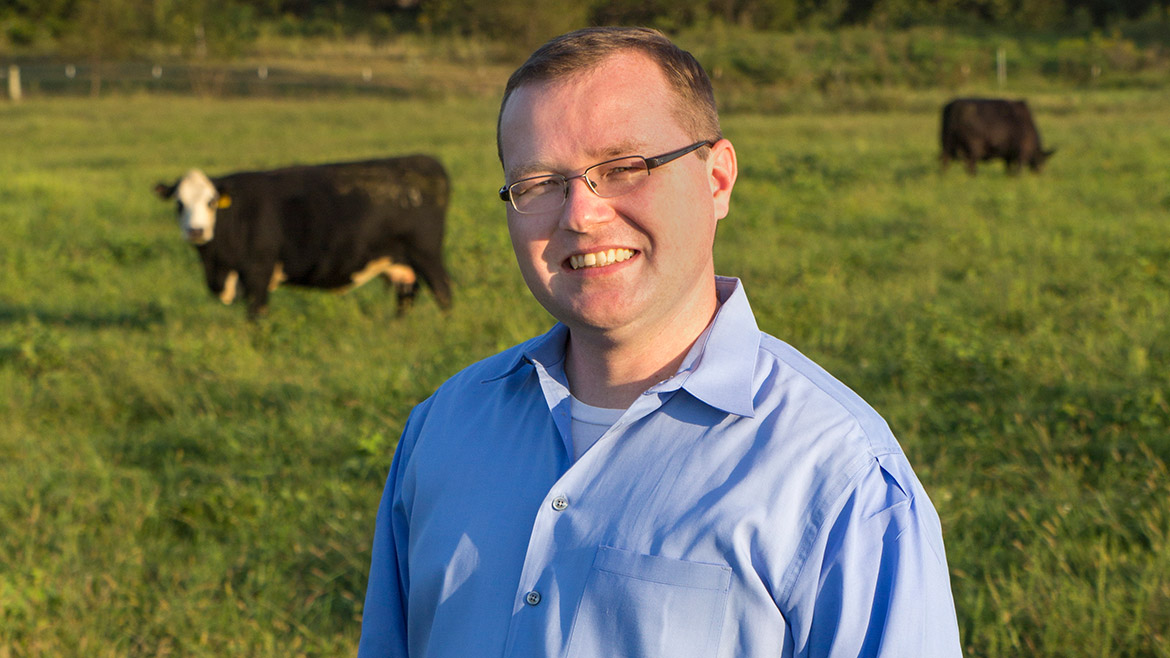Mike Deering, Executive Vice President, Missouri Cattlemen’s Association
by COMO Staff
August 29, 2017

- What is your organization’s mission? Our mission is simply “Dedicated to advancing Missouri’s beef industry.”
- Tell us about your organization’s history. Our roots trace back to 1911, making us the oldest and largest agricultural organization in the state (that we’re aware of). Much of MCA’s focus is on government affairs. It’s our strong belief that producers, as citizens, should be tireless in their protection of their private property rights and their business.
- How is your organization funded? Our organization is funded by family cattle farmers and ranchers who voluntarily pay annual dues. We also have a monthly magazine, Missouri BEEF Cattleman, and other events and services that generate non-dues revenue, but the vast majority of our funding is from dues dollars.
- Columbia is not typically perceived as an agriculturally rich community. Is that a misconception? That is a huge misconception. The Columbia area has grown to more than 175,000 people, and I absolutely guarantee you that every single one of them eats. Whether you live on one of the 1,171 farms in Boone County or you consume the food they produce, you are connected to agriculture.
- How do you protect the interests of the Missouri cattle industry? When it comes to a grassroots organization, I honestly don’t know how an organization could be more member-driven and member-run than this one. I just work here. Our organization is governed by a 77-member board that represents all county affiliates. We also have a 22-member executive committee comprised of our core elected leaders. Every member has a voice and guides our policy. The members call the shots and we work tirelessly to turn goals and priorities into realities. This is how we protect their interests — we know we’re working on issues they have deemed important.
- How do you support individual cattle farms? Individual farm and ranch families have their own set of unique challenges and opportunities. However, more times than not, other producers are in the same boat. We are a family and typically share challenges. Our biggest challenges are the weather and the mercurial markets. We can’t do a whole lot about that, but we can certainly work to create a legislative and regulatory environment that welcomes growth in the farming and ranching community. We receive calls every single day —Saturday and Sunday too — from members needing advice or assistance on matters they’re dealing with, from fence laws to county ordinances to family disputes. We always answer their call, and we always do everything we can to help. Always. Our association also provides several educational opportunities to help farmers learn about and implement practices that can help them advance their business.
- Beef is presented as healthy sometimes and unhealthy other times. How do you combat different perceptions about consuming beef? Beef is a delicious source of protein that supports weight loss goals, satisfies a heart-healthy diet, and is packed with nutrients without excessive calories. Nutrition facts show that, calorie for calorie, it’s hard to beat the nutrients you get from a single serving of lean beef. Just a 3-ounce serving contains 10 percent or more of your daily needs for protein, zinc, vitamins B12 and B6, iron, and selenium. Plant-based food advocates like to offer other foods to bolster protein content in plant-based diets, such as black beans, quinoa, and edamame. But you may be surprised that choosing beef is actually a calorie-saver. Beef supplies significantly fewer calories and more nutrients than many plant proteins. Now, don’t get me wrong — beef goes well with colorful veggies on the plate. Your body needs both.
- How many members do you have in the Boone County area? How many head of cattle are raised in Boone County? MCA has members in all 114 counties in Missouri. In Boone, we have more than 100 member families. Boone County is home to nearly 23,000 head of cattle, according to the U.S. Department of Agriculture.
- What is the biggest challenge facing your industry right now? This is a common question. Many talk about the overall farm economy or the knowledge gap between the consumer and the farm. Some mention misinformation and outright lies from animal rights extremist groups. I truly believe the biggest challenge is the aging farmer and rancher. The average age of a family farmer in Missouri is nearing 60 years old, and less than five percent are under 35. We must do everything possible to empower the next generation and work to ensure that we minimize roadblocks for new farmers — that’s really why we do what we do in Jefferson City and Washington, D.C. If we don’t repopulate the land with new farmers and ranchers, I cannot even begin to describe the woes for the people in this industry and for the people who purchase the food we grow and raise.
- What haven’t we asked you about that you’d like the public to know? Groups that oppose animal agriculture enjoy using the phrase “corporate factory farm” to imply large farms are faceless, irresponsible corporations with little regard for animal welfare, the environment, or food safety. This couldn’t be further from the truth, and let this serve as an open invitation to anyone reading this to visit a Missouri farm — I will personally take you. Almost all Missouri farms are owned and operated by a family. In fact, 99 percent of all farms in the U.S. are family-owned and -operated. Missouri is second only to Texas in the number of farms. The average cow-herd size here is 36 head, and the state is the third largest beef cow state in the nation. How does that work? We have a lot of families who raise cattle and collectively make a huge impact in food production in this state, throughout the country, and even outside the borders of the United States.


